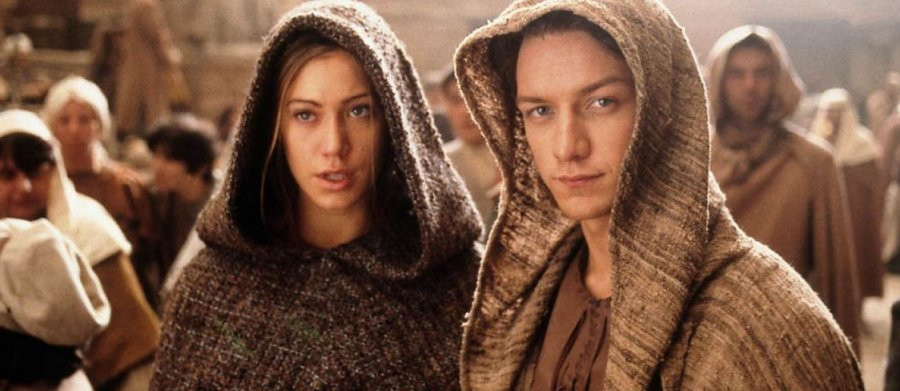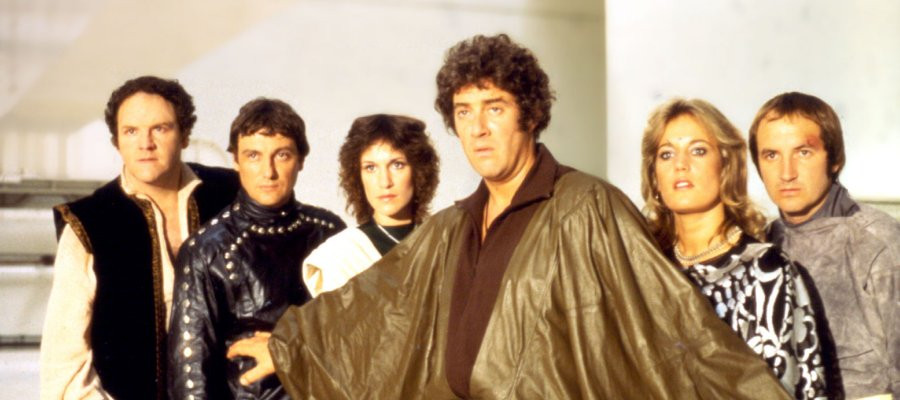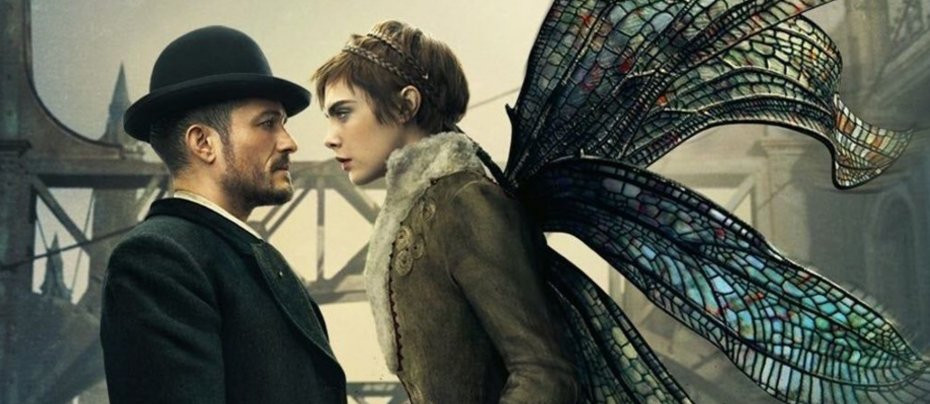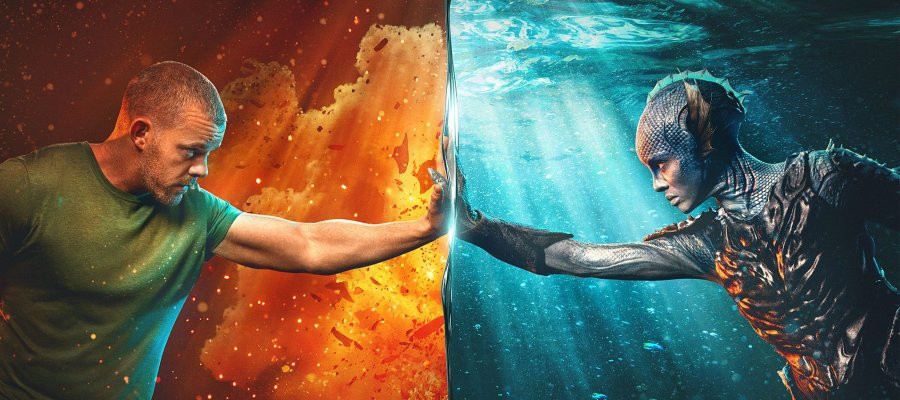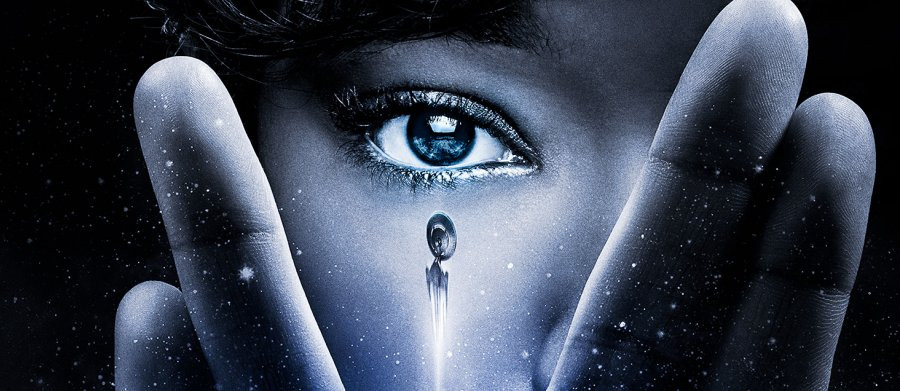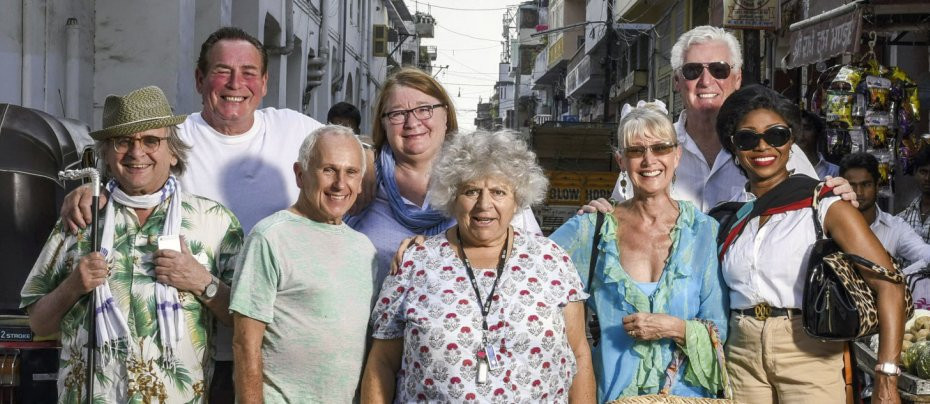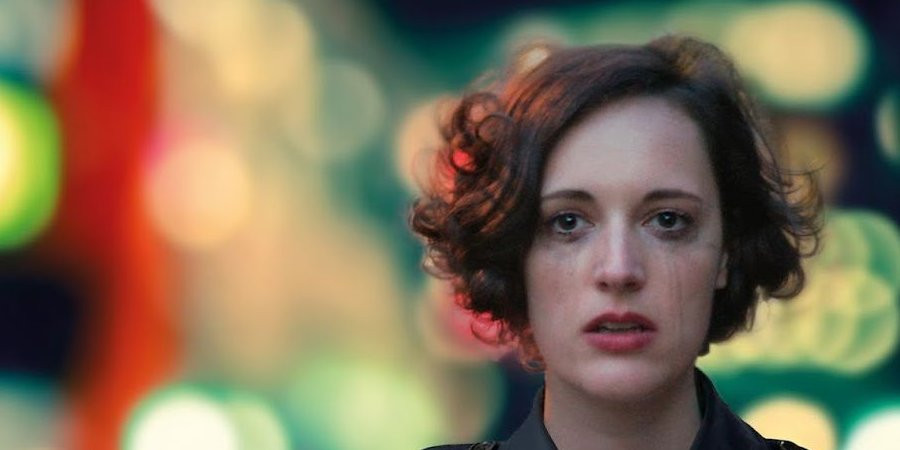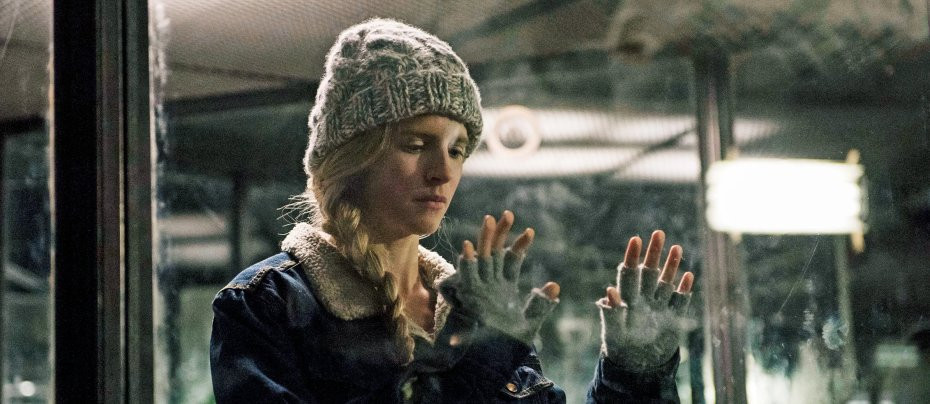
The OA
2016 - United StatesThe OA, the show not the character, is "cult television" at its most cultic.
Review by John Winterson Richards
We try to go easy on the spoilers, but it is difficult to discuss The OA without saying some things which might lead the intelligent reader - and we know all our readers are intelligent - to some good guesses.
It is a hard show to categorise, except to say that it is an oddity. That oddity is reflected in its reception: it got high ratings from both critics and viewers but it also got cancelled by Netflix after only two of its planned five seasons. Both parts of that contradiction are easy to understand. It is a slow burning story that demands a high degree of mental engagement from the viewer but which ultimately delivers great rewards to those who manage to stick with it. This is not exactly a formula for mass market success in the modern world. It is no surprise that those who stayed the course became very loyal to the show or that they were few in number.
Indeed, one cannot help but draw a parallel between the hardcore fans and some of the characters in the show, the gang of outsiders that "OA," the leading character, gathers around her: they are bound together by secret knowledge that the rest of the world cannot understand and the opinion of the rest of the world ceases to matter to them. No wonder the gang in the show is mistaken for a cult and The OA, the show not the character, is "cult television" at its most cultic.

The story begins with what appears to be a miracle: a young woman who has been missing from a Midwestern town is brought home unexpectedly. Even more miraculous is the physical change she has experienced.
She refuses to discuss what happened to her with her nice parents or the nice FBI counsellor who says he only wants to help. Instead she acquires, apparently at random, that gang of five broken and confused people, four of them teenagers, and over the next few episodes tells them everything she is not telling her parents or the FBI.
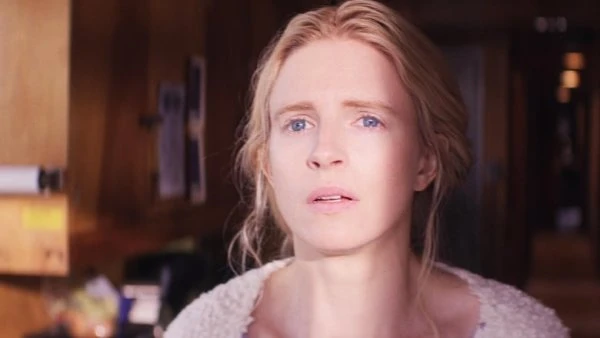
Or does she? It is pretty obvious from the start that we are dealing with an "unreliable narrator" and the information we are given about her upbringing gives us every reason to be suspicious. We are not even sure of her name. She has several throughout the story, of which she prefers "OA" - but it does not exactly give us confidence in her when she finally reveals what that means. Questions about the nature of truth, reality, and identity are at the heart of The OA.
This is at first intriguing rather than involving. The pace of the first episode seems deliberately pedestrian, as if emphasising the meaninglessness of the mundane suburban existence to which OA has returned, until the opening titles ...ten minutes before the end of the episode. These give us a jolt of energy and a lot of completely new information that seems to change everything. Yet, not for the first time or the last, we soon begin to question what we are being told.
The plot builds gradually over the next few episodes and it has to be said that the process is not overly exciting. Half the story is told in "flashback," a difficult narrative device if overused, and the other half takes place in a fairly affluent but still very depressing new development in Middle America. Much of the "flashback" is confined to a basement. OA herself is mesmerising, but our distrust holds us back from committing to her. The five people who become her acolytes all seem rather disagreeable when we first meet them, and it’s only as we get to know them that we begin to see below the surface and sympathise with their different vulnerabilities.
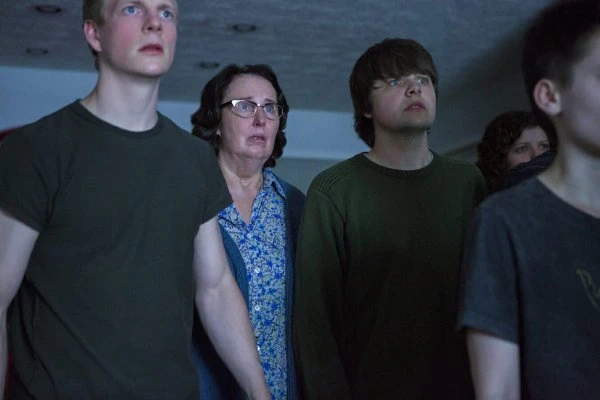
One can understand why many did not stay with it. Those who did probably did so, at least in part, because they wanted to know if there was a point to all this. There was, and they were rewarded with a good dramatic "pay off" at the end of the season. It is slightly irritating that the final crisis is something of a cliché these days and comes out of the blue rather than being foreshadowed in some way. At the same time it also irritates for the opposite reason, that the response was predictable, not to mention more than a bit ridiculous. Yet, in spite of these irritations, the ending and the season as a whole delivered a powerful emotional impact.
Season Two opened with a complete change of pace, style, tone, storyline, and location. It was somewhat disorienting to find oneself watching what seemed like a different show, a more dynamic detective drama about a private investigator in San Francisco. Only gradually did overlaps with the previous season begin to work their way in, and later we returned to the characters we had met there. For a few episodes the two plotlines seemed to run in parallel, separately and alternately, before beginning to converge in a clever mind bending finale.

There was a definite change of aesthetic between the seasons. The early episodes of Season One kept reminding your reviewer of Rene Magritte's 'The Empire of Light' paintings - so it was doubly pleasing when an episode came along titled "Empire of Light." This style has an intense beauty of its own, but it is not exactly upbeat. Season Two is often, not always, brighter and more cheerful, and seems to be referencing a number of diverse sources. We get some nice "Indy Road Movie" sequences, complete with guitar music as our heroes cross America. We also get a lot of classic horror movie stuff, so that it sometimes feels we are in Stranger Things - which is actually mentioned in the dialogue. The San Francisco scenes are clearly influenced by a number of detective films set there and by Hitchcock.
Above all, Season Two is deep in David Lynch territory. We even get a scene with a helpful talking octopus - but be warned that it never seems to end well for octopodes streaming service productions. Yet, even at its most surreal, there still seems to be an internal logic at work. If the plot is not without its holes and some contrivances seem quite ludicrous one has to give the script the benefit of the doubt because it was all worked out in advance for everything to be explained over five seasons, of which three were never made.
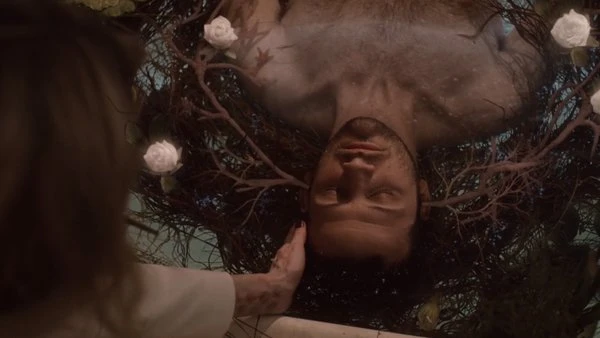
What we have touches on a lot of interesting topics, including "near death experience" (NDE) and the possibility of multiple, even infinite, separate but related "dimensions" or universes. Is the "supernatural" mystical or just the natural we do not yet understand? Or could the apparent bending of reality in The OA be no more than the effect of insanity or hallucinogens as the script sometimes suggests? The writers never got to give us their own conclusions, but perhaps these questions are all the more fascinating for being left open.
The writers in question, or at least the head writers, are Executive Producers and frequent collaborators Brit Marling and Zal Batmanglij. Marling also plays the title role and Batmanglij directed most of the episodes. Marling, probably best known to British viewers for Babylon, Danny Boyle's satirical drama about the Metropolitan Police with James Nesbitt, is herself a very intriguing actress. Blessed with the looks and talent for huge mainstream success, she has always preferred offbeat projects, The OA being a perfect case in point.
She convinces as one of those magnetic individuals with the power to influence those around them, so that one sees why she might be mistaken for a cult leader, but at the same time she never tries to hide the fact that she is as frightened and uncertain as they are.
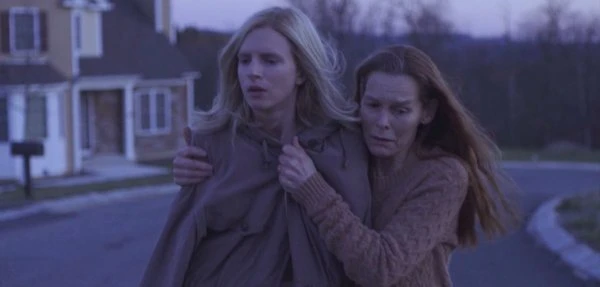
She is given great support. The ever watchable Alice Krige and Scott Wilson, in one of his last roles, are ideal as her caring parents, themselves confused by her inability to communicate with them. Jason Isaacs has one of his best roles as a brilliant but psychologically flawed physician. An actor of great presence and versatility, Isaacs is best known for his villains and his authority figures. Here he gets to play a slight variation, a villainous authority figure, but he also gives us a sense of the man's inner weakness and what drives him. Riz Ahmed is amiable as the FBI man who seems extraordinarily patient with OA for a government official with a file to close and who has the air of a man who knows a lot more than he is letting on.

Phyllis Smith is poignant as an out of her depth teacher, a supposed adult who never quite developed fully and now finds the world has no place for her. British actor Kingsley Ben-Adir gives us a classic hard bitten but honest private detective in the tradition of Hammett and Chandler. Vincent Kartheiser is a Musk-like Silicon Valley tycoon who seems to be pulling all the strings. Liz Carr is a past MI5 operative with an ironic interest in crows. Paz Vega is rather underused as a sexy Cuban guitar player and Irene Jacob is suitably enigmatic as a sexy French "tourist" - or is she? Among the younger cast, Patrick Gibson stands out as a very unpleasant bully with hidden depths who manages to earn our sympathy, perhaps even a bit of respect.
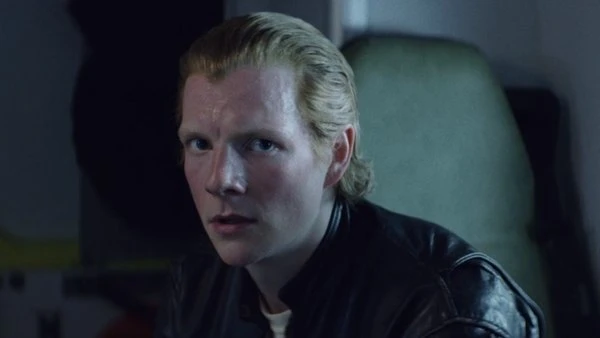
It would have been interesting to find out a lot more about these characters and how they changed - possibly across many dimensions - as the story progressed. The show's cancellation was doubly frustrating in that, unlike the first, the second and last season ended on a cliffhanger that was never resolved - which was also a wonderfully imaginative "meta" moment that turned the whole reality of The OA completely upside down.
Four years on, it looks increasingly unlikely that the show will ever be revived - and even if, somehow, it was, the ageing of the younger members of the cast would make it impossible simply to carry on where it left off. So if that is simply not going to happen, someone could do a lot worse than encourage Marling and Batmanglij to write a novelisation - to let us in on the secret of where they wanted to take the story. Or is it more in keeping with the ethos of The OA that some mysteries remain mysteries?
Seen this show? How do you rate it?
Seen this show? How do you rate it?
Published on July 19th, 2022. Written by John Winterson Richards for Television Heaven.



